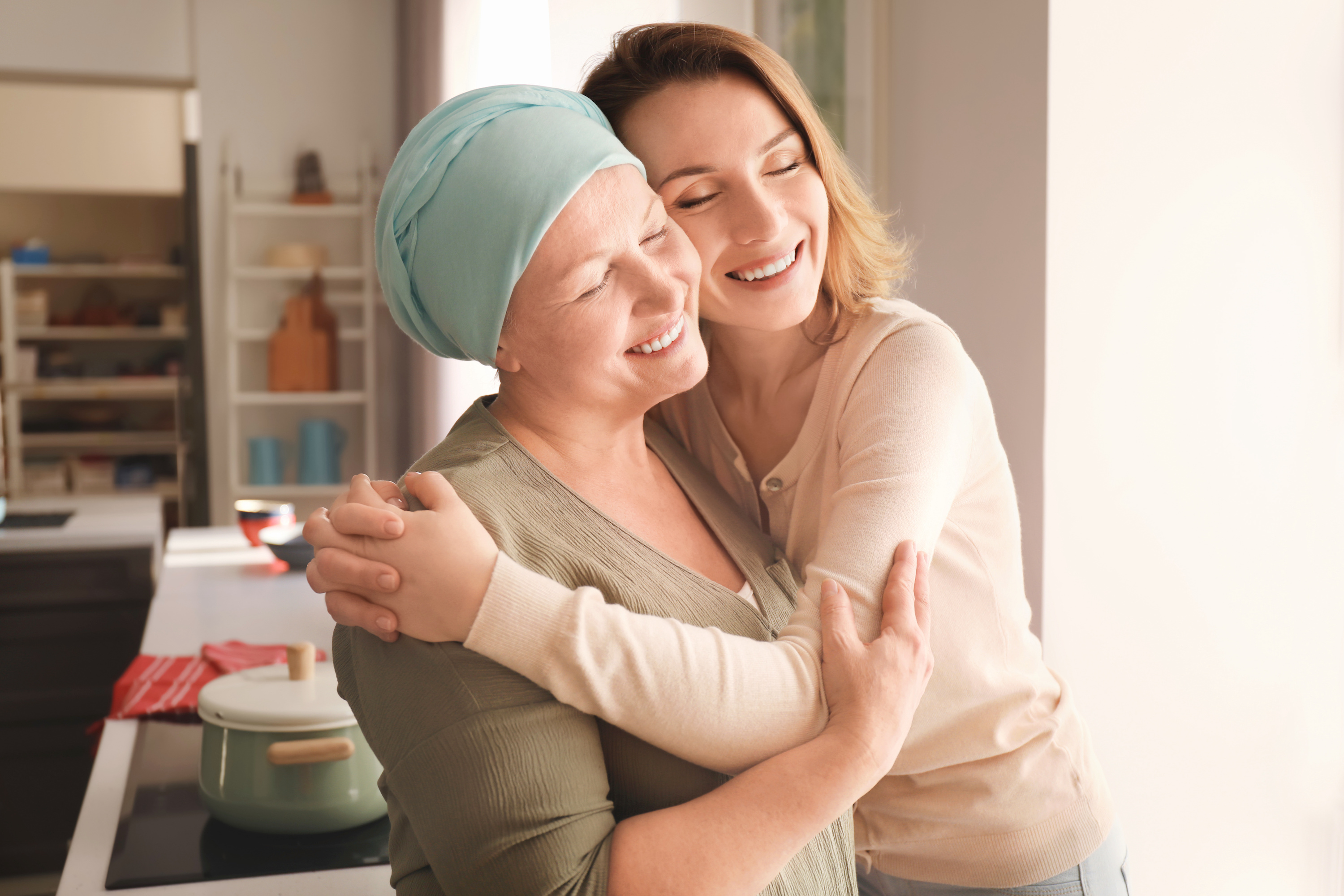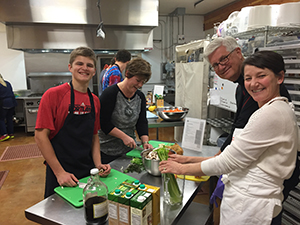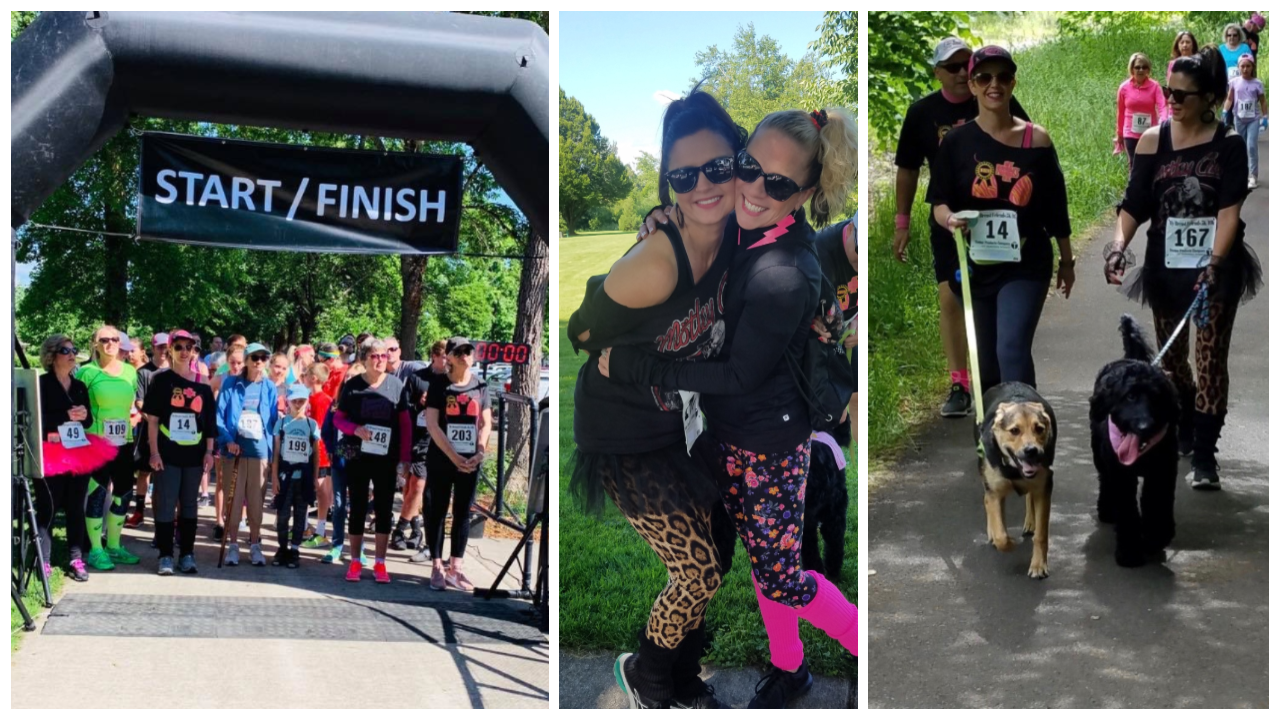Cancer can take a tremendous toll-physically, emotionally and financially. Fortunately, there is a network of local services that patients can tap into to find support.
“Every patient is different; everybody’s journey is different. Someone might need a particular resource at one point, whereas another person might need the same resource at a different point,” says Katie Burke, a patient navigator at Willamette Valley Cancer Institute.
Support Groups
Whether recently diagnosed, undergoing treatment, or managing your disease, support groups can offer survivors and caregivers a place to gather information and make connections.
“We come because we get feedback, information, companionship and friendship with other people who really understand. We also come to give that back,” says Lynne Phillips, who was instrumental in starting the Multiple Myeloma Support Group at WVCI more than a decade ago. She still attends regularly.
A typical support group session lasts one to two hours and topics are usually decided by the group, so that the discussion is relevant and useful. For a list of local support groups, click here.
Nutrition support
Cancer treatment can often cause side effects that make it difficult to eat or receive proper nutrition. At WVCI, oncology dietitian Shelly Kokkeler works with patients to create individual nutrition plans to help them cope with side effects that may hinder eating or digestion.
“Depending on the type of treatment, whether it be chemotherapy or radiation-and it varies on both the type of chemotherapy or what part of the body is radiated-people can develop various side effects that diet plays a role in,” Shelly says.
Learn more about WVCI’s nutrition counseling services here.
Positive Community Kitchen
Nutrition is an important factor in the body’s ability to heal. At Positive Community Kitchen (PCK), volunteers prepare and deliver nutrient-rich, organic meals to people fighting cancer. And, in collaboration with Oregon Cancer Foundation and Whole Foods Market, PCK now offers a free cooking class to cancer survivors and their families once a month. Watch a recent class here.
LIVESTRONG at the YMCA
The Eugene YMCA offers the LIVESTRONG program, a 12-week exercise program offered at no cost to help survivors build muscle mass and strength; increase flexibility and endurance; improve confidence and self-esteem; and diminish the severity of side effects of cancer treatment. For more information, call 541-686-9622, or email livestrong@eugeneymca.org.
American Cancer Society programs
The American Cancer Society (ACS) offers several programs to assist patients in their cancer journey. Appointments are required for the following programs and can be made by calling: 1-800-227-2345.
The Road to Recovery program provides patients with transportation to and from medical appointments.
At the Believe Boutique at WVCI’s Country Club Road location in Eugene, trained ACS volunteers help patients who experience hair loss during treatment choose a free wig, scarf or hat. Fittings are by appointment only.
“When people start to lose their hair, it is traumatic,” says volunteer Shannon Taggart. “They can come in, get a wig, a hat, scarf or turban, whatever they need-and the volunteers will teach them how to tie the scarves and make the hats look cool.”
In addition to fittings, ACS offers a workshop once a month called Look Good, Feel Better. Trained, volunteer cosmetologists help women cope with cancer treatment side effects using skin care products and cosmetics.
Financial support
Cancer can also have a financial impact on people’s lives. The Oregon Cancer Foundation provides financial assistance to patients undergoing cancer treatment in Lane County, through its Financial Assistance Program. In addition, OCF offers a Survivorship Series several times a year to help patients manage issues that may arise after they finish treatment.
To access additional cancer support resources, in the community and online, click here.



